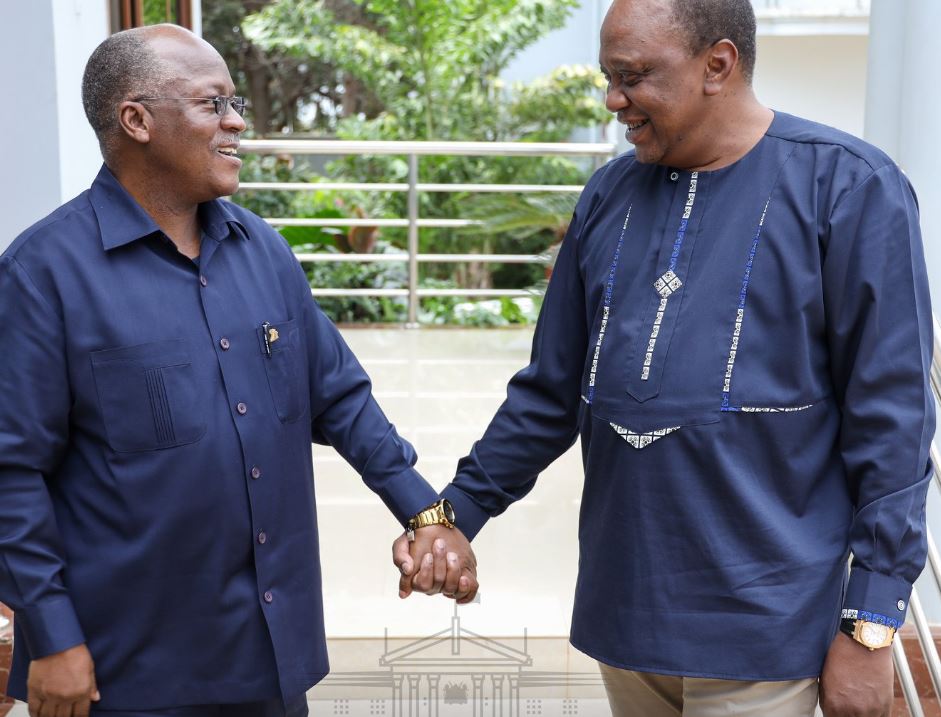×
The Standard e-Paper
Home To Bold Columnists

Presidents Uhuru Kenyatta and John Magufuli when the two met in Tanzania recently. [PSCU]
A good neighbour, Arthur Baer, the late American journalist and humorist observed, is a fellow who smiles at you over the back fence, but doesn't climb over it.